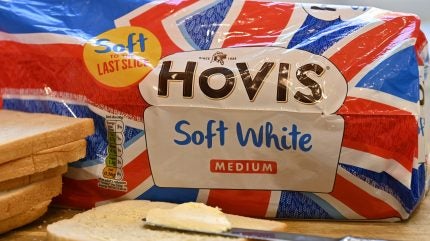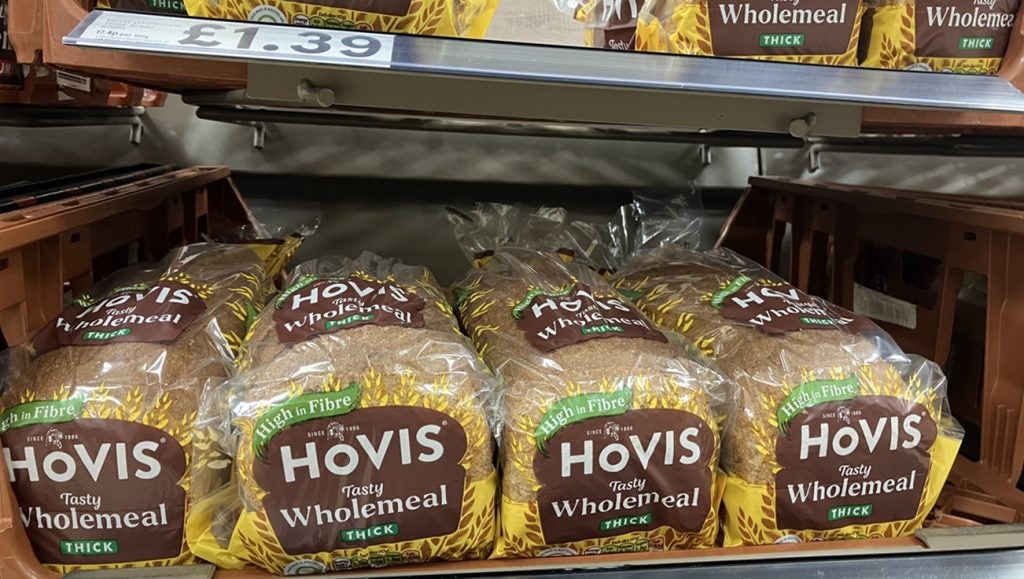Leaf through at least the last ten years of Associated British Foods’ annual reports and it’s clear the UK bread market has been no cakewalk for the food, ingredients and retail group.
There have been years in which ABF has reported year-on-year revenue growth from its Allied Bakeries arm in the UK but the last decade has been mostly one of sluggish sales and of striving to turn a profit.

Discover B2B Marketing That Performs
Combine business intelligence and editorial excellence to reach engaged professionals across 36 leading media platforms.

ABF’s struggles in UK bread have long begged questions about its future in the category. Back in 2019, then finance director John Bason, after reporting the third consecutive year in which Allied Bakeries had made an operating loss, told Just Food the company remained committed to the market and ruled out a sale.
And the debate stretches back at least as far as this correspondent has covered the food sector. In ABF’s 2008 financial year, the Kingsmill bread brand owner said Allied Bakeries had performed “poorly” in the face of rising commodity costs and fierce competition in the UK bread market (it was ever thus). Some City analysts had begun asking whether ABF should remain in bread, a business central to the start of the company in the 1930s.
Fast-forward five years to 2013 and there was speculation ABF might swoop for Hovis, then owned by UK manufacturer Premier Foods. Robert Lawson, the managing partner at European consultancy Food Strategy Associates, remembers the opposite transaction was mooted when he was at Premier in the late 2000s.
“The synergies were significant – consolidation of factories and of the two businesses’ expensive direct-store-distribution systems delivering on a daily basis, rationalisation of the management teams running the businesses, consolidation of mills and procurement synergies. On top, there was also the opportunity to rejuvenate Hovis’s aged bakery network, which even then was much older than ABF’s,” Lawson says.
This week, a deal did come to pass – and was something of a surprise to some industry watchers. When ABF announced in April it was putting Allied Bakeries up for strategic review – and, days later, said it was in talks with Hovis’s owners, the private-equity firm Endless – many onlookers assumed the group was set to leave the UK bread market.
“Getting bigger in bread is probably not what investors want to see,” Barclays analysts covering ABF said in a note to clients on Friday (15 August). “No doubt investors would have preferred ABF to have exited UK bread altogether but this wasn’t really a realistic option given the structure of the industry with market leader Warburtons family-controlled and Hovis owned by private equity.”
City analysts estimate ABF has lost hundreds of millions of pounds in the over-supplied and stagnant UK bread market in recent years. Demand for sliced bread has been soft for a number of years, while Kingsmill and Hovis, with their product ranges largely centred on conventional fare, have faced a trio of competitive threats: private label, more artisan products like sourdough and the strength of the privately owned Warburtons, which has built the largest branded business on solid marketing and innovation.
“We reckon that Allied has lost anywhere between £500m ($673.4m) and £750m over the last 15 years in UK bread,” Shore Capital analyst Clive Black tells Just Food. “If it hadn’t been for the envelope of ABF, [Allied Bakeries] would have been probably closed some time ago. Those numbers are the accumulated trading losses, the redundancies, restructuring and impairments that have taken place. At the moment, we would suggest it’s losing on an annualised basis somewhere between £25m and £40m a year.”
UK competition scrutiny
ABF believes the combined Allied Bakeries and Hovis business can be a more robust operator. “This transaction will create a UK bakeries business that is both profitable and sustainable over the long term. Supporting the Hovis and Kingsmill brands with well-invested and efficient operations will also enable innovation and growth,” George Weston, ABF’s CEO, said on Friday. “This solution will create value for shareholders, provide greater choice for consumers and increase efficiencies for customers.”
The completion of the transaction is subject to the approval of the UK’s Competition and Markets Authority, which will likely look closely at a deal bringing together two of the largest branded players in the country’s bread market.
Shore Capital’s Black believes the CMA should let the transaction through, pointing to the choice presented by private label, by regional manufacturers like Roberts Bakery and Jackson’s Bakery and, of course, by Warburtons. “This is a merger out of distress, not out of progression,” he says. “If it doesn’t take place, I think there will be very substantial, potentially irrational, rationalisation. If it does take place, then a necessary evil will probably occur. I don’t think it is detrimental to the UK shopper’s interest.”
When Lawson was at Premier, the mooted cost benefits of an Allied Bakeries-Hovis combination made the idea of a deal “compelling”. He adds: “The view then was that [competition approval] was unlikely. Today, Kingsmill is a much-diminished presence on shelf so retailers no longer have the same ability to punish the consolidation with brand rationalisation – and there is limited alternative to retailers of branded suppliers, so the synergies may hold.”

ABF does not disclose detailed sales and profit numbers for Allied Bakeries. In the group’s 2024 fiscal year (the 12 months to 14 September), Allied Bakeries saw a “much-reduced operating loss” amid what ABF called “improved sales and operational performance”.
However, when the Sunblest brand owner announced its results for the first half of the company’s current financial year in April, it appeared Allied Bakeries was again finding the going tough. “Our UK-focused businesses declined overall,” the Ryvita crispbread and Jordans granola maker said. “As expected, this was primarily due to lower volumes and sales in Allied Bakeries, which resulted in an increased operating loss. Allied Bakeries continues to face a very challenging market.”
Endless snapped up Hovis from Premier and US investor Gores Group in late 2020. Companies House, the UK business register, has two full years of financial results since the change of ownership. The most recent set of numbers cover the 52 weeks to 28 September 2024, when revenue stood at £446.8m, down almost 9% on a year earlier, an operating loss of £2.9m (compared to one of £3.2m the previous year) and a net loss of £4.7m (against one of £3.6m).
“The group has achieved positive financial progress despite continued tough trading conditions,” commentary alongside the figures reads, highlighting improved EBITDA. “These results highlight our focus on managing the cost base in a highly competitive market and demonstrating good progress during the year, which will continue into 2025.”
Cost synergies to be captured
Should the CMA clear the deal, how might ABF go about creating that long-term “profitable and sustainable” UK bakery business its CEO touted last week?
Barclays’ analysts believe the synergies ABF might extract from the deal “could be very significant”. They argue the £50m in cost savings suggested by unnamed industry sources to Sky News “could be conservative”, adding: “The acquisition will combine the production and distribution activities of the two businesses, driving significant cost synergies and efficiencies with the aim of creating a sustainable and profitable UK bread business in the long term. It could free up money to invest in the more interesting parts of market – high-protein breads, breakfast goods. If ABF could turn a £30m loss into a £20-30m profit on a two- to three-year view and pay around £75m for the business, that would be an attractive payback.”
At Shore Capital, Black is sceptical about the prospect of substantial revenue synergies but says ABF could look across the business, from the C-suite, through manufacturing and distribution and onto product ranges, in order to find efficiencies.
“Once they’ve worked out the assortment, starting to put the production plan together, which ultimately may lead to the closure of bakeries or the rationalisation of lines,” he suggests. “Then, perhaps under the radar, but most significantly, combining the distribution model. Like milk, bread is one of the few products that is still delivered to store and combining distribution with materially improved vehicle utilisation means saved costs. From the centre right through to the distribution process, removing duplication, going to a single business model and taking a lot of costs. Whether this deal actually does make for more innovation in product and for the development of brands in revenue-based synergies remains to be seen. I’ve been around too long to trust revenue-based synergies.”
Now it’s over to the CMA where competition officials will sift through the financials of both businesses. Warburtons will be watching closely. “It is hard to argue that manufacturers have the whip hand over retailers given the scale of industry losses,” Barclays adds.



